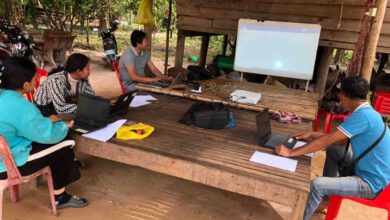Advocates Lobbying for Open Data Laws

One man asked, “Where did the public money go?” In response, he faced threats and pressure to stay silent. Yet, he stood firm, echoing a growing grassroots movement for open data laws. Advocates believe government-held information should fuel civic action, not stay hidden.
Their mission is to inform and demand accountability. As Advocate Tembeka Ngcukaitobi notes, sectors like tax and construction law remain dominated by white males, revealing a hole in equity and access.
What Can Open Data Be Used For?
Imagine being able to see how your local government spends taxes, track how schools are performing, or understand where development funds really go, all from a phone or public portal. That’s the promise of open data: accessible, reusable, non-sensitive government information available to all.
The global open data movement grew from Freedom of Information laws, open government initiatives, and digital transformation. With the rise of the Open Data Charter and the Open Government Partnership (OGP), countries worldwide began seeing data as a civic tool, not just a bureaucratic asset.
In Africa, progress varies. In Nigeria, for instance, the right to information is protected under the Constitution, but the real catalyst came with the Freedom of Information (FOI) Act in 2011. It unlocked new momentum, further amplified by the growing influence of digital technologies, civil society organizations, and international development agencies.
Kenya also launched the Open Data Initiative (KODI) in 2011, which was the second African nation to do so. One of our primary objectives was to make public information publicly available under an open license to facilitate innovation and promote accountability and transparency.
South Africa’s Western Cape leads with real-time budget transparency. Ghana integrates open data in its public financial management systems.
In Rwanda, although the government collects and shares data in sectors like agriculture and health, public access remains limited to a few approved actors.
But despite these examples, the Global Data Barometer (2022) reports that over 70% of African countries still lack comprehensive open data frameworks.
The Effectiveness of Advocacy Lobbying for Open Data Law
What is driving the demand for open data? civic advocacy and policy lobbying. Advocacy promotes awareness, educates the public, and mobilizes grassroots support for vital topics. Lobbying, on the other hand, directly addresses lawmakers, urging them to make specific legislative or policy changes.
When these come together, they do more than just generate noise; they inspire action. They work together to turn local complaints into national conversations and push transparency to the top of policy agendas. Grassroots lobbying, in particular, begins with the groups most affected by data inaccessibility and progresses upward until decision-makers are forced to act.
Across Africa, this dynamic is reshaping how data is accessed, shared, and used. In Nigeria and Ghana, BudgIT’s Tracka initiative is a standout example. By simplifying government budget data and making it accessible to the public, Tracka empowers citizens to track public projects, report discrepancies, and advocate for improved governance. What began as a digital platform has grown into a civic movement, fueling citizen-led accountability in underserved regions.
Code for Africa is leading the charge in South Africa, Kenya, and Uganda, using tools such as Open Cities Lab and OpenUp. These civic tech platforms transform raw data into useful insights for urban planning, transparent budgeting, and public service improvement. By prioritizing access for low-tech and marginalized communities, they have expanded data consumption while also driving local governments to implement open data policies.
Additionally, in Burkina Faso, a coalition of civil society organizations and media outlets has sparked a national discussion about mining revenue transparency. Their campaign led to the country’s participation in the Extractive Industries Transparency Initiative (EITI), which triggered legislative changes and public disclosure of mining contracts and earnings.
Who’s Leading the Push for Open Data Access in Africa
Strong voices are emerging around the continent, sometimes out of the spotlight but making an impact:
Juliet Nanfuka of CIPESA (Uganda) is assisting in the development of digital rights in Africa by educating civil society organizations in nations such as Zimbabwe, Mozambique, and Lesotho on how to advocate for people-centered legislative reforms and better privacy safeguards.

CIPESA Trains CSOs on Digital Rights Advocacy and Campaigning in Africa
Through regional workshops, cross-border collaboration, and platforms like FIFAfrica, she’s building a united front for tech accountability on the continent.
Gbenga Sesan (Nigeria), Executive Director of Paradigm Initiative, oversees initiatives to provide underserved children with digital skills and protect online rights in 27 African countries. From Nigeria to Senegal, he advocates for digital inclusiveness and open governance, typically working in collaboration with civic IT communities.
Khaled Koubaa (Tunisia), Google’s Policy Manager for MENA, has worked for over 20 years defining internet policy in Africa and the Arab world. From establishing Tunisia’s Internet Society chapter to sitting on boards such as AFRINIC and ICANN, he advocates for an additional Public Interest Registry (PIR) as an Advisory Council member.
Conclusion
The open data revolution is now about people as well as laws. More people, from community groups to civic tech activists, are speaking out to demand access and responsibility.
However, this growth requires more than just support; it requires involvement. Anyone can make an impact by asking the correct questions, participating in a local campaign, or using available facts to advocate for change.





